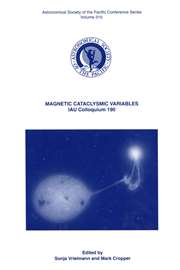No CrossRef data available.
Article contents
Desktop Space Exploration
Published online by Cambridge University Press: 15 February 2018
Extract
The Humble Space Telescope project aims to launch a small space telescope for educational and recreational purposes, in time for the New Millennium.
The arrival of the 3rd Millennium, accompanied in the United Kingdom by a Millennium Commission distributing 250 million per year of National Lottery funds for good causes and imaginative projects which would otherwise require direct funding by the taxpayer, provides a unique opportunity to design, build and operate a small but capable version of the pioneering Hubble Space Telescope.
In July 1994, a leading British newspaper with a long history of covering developments in science, launched a competition for members of the public to propose science projects to be funded by the Millennium Commission.
- Type
- Section Five
- Information
- International Astronomical Union Colloquium , Volume 162: New Trends in Astronomy Teaching , 1998 , pp. 237 - 240
- Copyright
- Copyright © 1996




